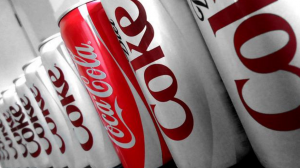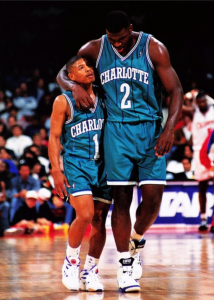I’ve never been a big soda drinker, and I can thank my parents for that. They rarely let me drink it and never had it around the house. Now that I’m older, I’m thankful for that as I live a healthier life than many of my friends. According to an article by Marie Dannie of Livestrong, the only real benefit from soda is moderate hydration. She says that soda can help you meet the daily recommended hydration levels. However, water is obviously a better alternative as soda has dozens of other bad effects on the body. Throughout my life I’ve seen many family members make the switch from regular soda to diet soda. Often it was because they were looking to lose weight without having to completely cancel soda out of the diet. I had heard before that drinking diet soda was actually worse for you. I had a hard time believing this because how could anyone buy this product if there were any evidence that it weren’t a healthier alternative? I finally decided to do some research on it and maybe now I can finally educate some family members.
http://www.medicaldaily.com/diet-soda-vs-regular-soda-one-worse-you-other-308063
I found an article by Dana Dovey of Medical Daily which outlines the good, bad, and really bad effects of diet soda as well as regular soda. She starts off right away by explaining that both types of soda simply aren’t good for you; there are good and bad to both. Dovey goes on to explain the only positive benefit she can think of, which is dental hygiene. She explains that the the lack of real sugar in diet soda (diet soda contains artificial sugar) is better for the teeth than actual sugar which is in regular soda. However, she states immediately after that diet soda also contains acid which can eat away at your teeth over time. So I guess she really couldn’t come up with any benefits of diet soda.
In her next section she writes what she considers the “bad” things about diet soda as opposed to the “ugly” which she addresses later. She explains that the use of artificial sugars in diet sodas actually contribute towards weight gain. Apparently the artificial sugars in diet sodas increase sugar cravings as well as overall food and drink cravings. So unless you limit the amount of food you consume while drinking diet sodas, you could very easily see a weight increase even though the soda contains no real sugar or calories.
Next, she discusses the much more serious effects of diet soda which include increased risk of strokes and heart attacks. In a University of Miami study, 2,465 people reported what they drank and how often they drank it, and then they were followed for 9 years. At the end of the study, it was found that diet soda drinkers, as opposed to those who rarely drank soda, had a 48% greater chance of heart attacks or strokes. While this leaves a lot of room for 3rd variables, it definitely shows a decent correlation between diet soda and health problems.
Dovey then goes on and explains the good, bad, and ugly of regular soda. She states that regular soda can effect learning capabilities as well as memory function. This is due to the extreme amounts of sugar in sodas that reduces brain derived neurotrophic factor, which is a chemical that effects learning and memory. She also mentions a 2012 study that showed that one soda per day strongly correlated to a 20% increased risk of a heart attack. With this, we still can’t conclude whether diet soda is more or less healthy than regular soda, but we can certainly prove that both sodas are causally related to poor health, which has been found in numerous detailed studies. Obviously the best option is to stay clear of both types of soda, especially since there are so many healthier alternatives. Next time you’re thinking about taking a diet coke over a regular coke, thinking it’s the lesser of two evils, you might want to settle for a water.











